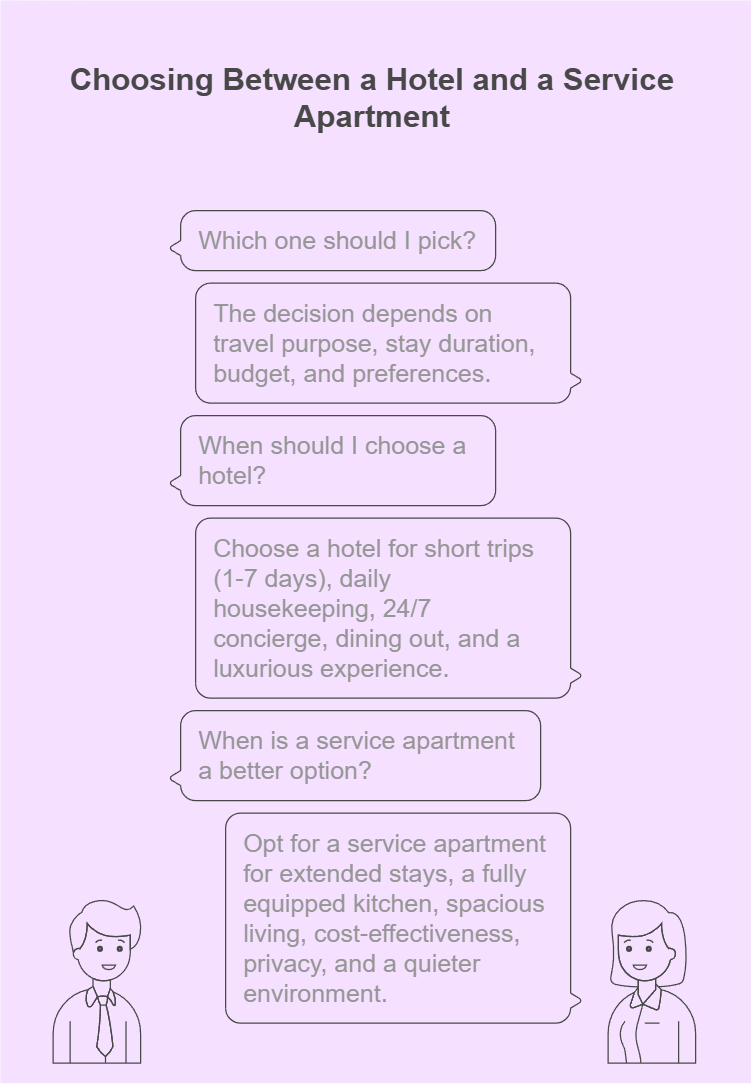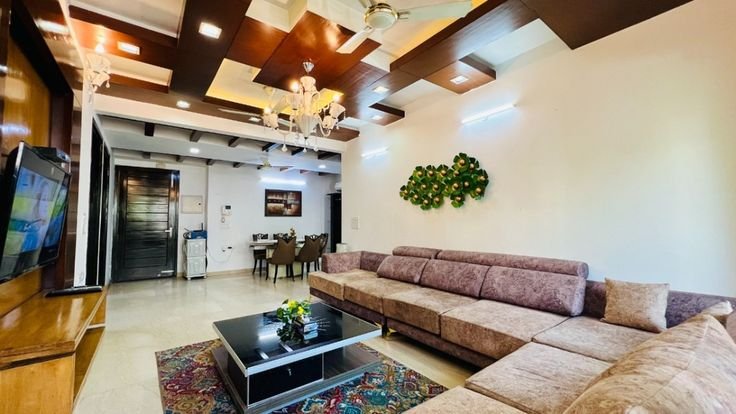Service Apartment VS. Hotel, Accommodation is an important factor in deciding the overall experience while traveling for business or leisure. Although hotels have been the preferred option for travelers for a long time, service apartments have become increasingly popular over the last few years because of their distinct benefits. Knowing the differences between Service Apartment VS. Hotel can assist travelers in making a well-informed choice depending on their needs, length of stay, and budget.
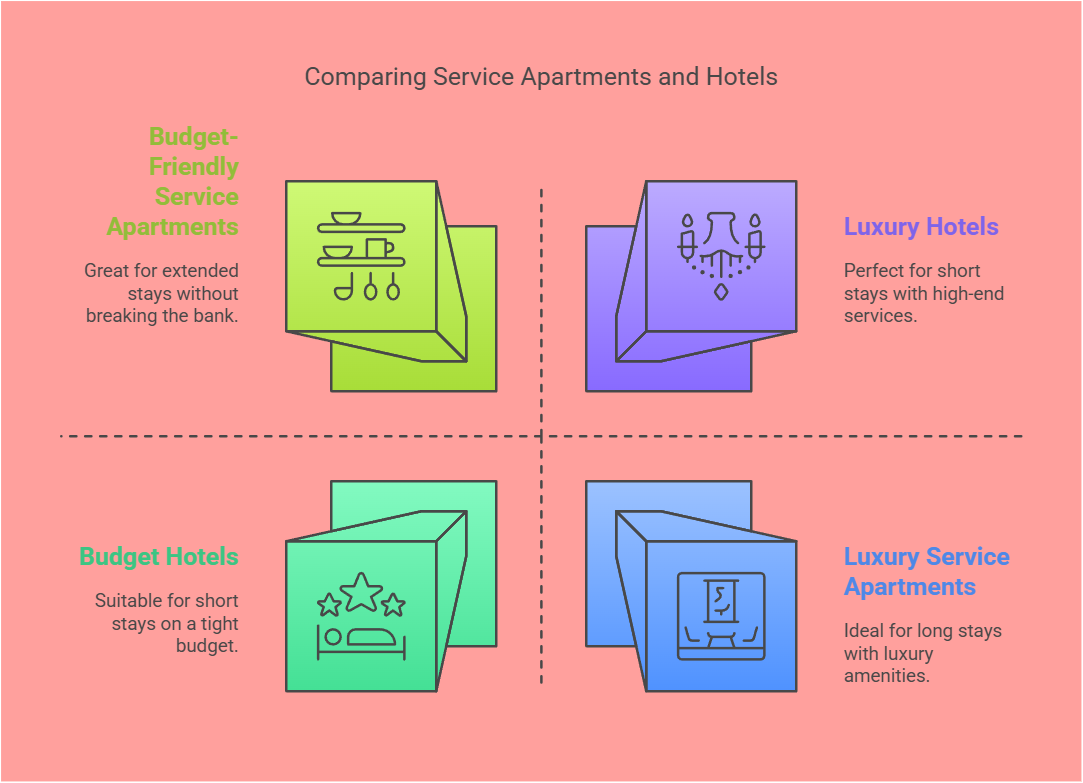


What Is a Service Apartment?
Service apartments, or serviced apartments, are fully equipped apartments providing home-like comfort with the luxury of hotel-like services. Service apartments have a kitchen, living room, bedroom(s), and bathroom(s) and therefore are most suitable for long-stay accommodations. They are mainly occupied by business travelers, families, and individuals who need an extended stay with a homelier atmosphere. Service Apartment VS. Hotel
Main Distinctions between Service Apartment VS. Hotel
1. Space and Arrangement
One of the biggest differences between service apartments and hotels is the size of space they have to offer. Service apartments usually have more space compared to hotel rooms. A typical hotel room has a bedroom and a bathroom, but a service apartment has living, dining, and sleeping areas separately. This makes service apartments perfect for families or people who need extra space in which to work, unwind, or entertain guests.
2. Cost and Affordability
For a short stay, hotels could be the preferred option because of their convenience and flexibility. But for longer stays, service apartments tend to be more economical. Hotels are charged per night and have additional charges for services such as laundry and meals. Service apartments, on the other hand, have lower prices for longer periods and have kitchen facilities that minimize eating out, further decreasing the overall cost.
3. Kitchen Amenities and Dining Facilities
In contrast to hotels, where guests must depend on room service or in-house dining, service apartments have fully functional kitchens. This means that travelers can cook their own food, depending on dietary needs and avoiding the cost of restaurant meals. For those who prefer home cooking or families traveling, a kitchen can be a huge plus.
4. Privacy and Comfort
Hotels, particularly active ones, can become impersonal with heavy foot traffic and ongoing activity in lobbies, corridors, and restaurants. Service apartments offer a more personal and homey environment, and thus are ideal for individuals who require personal space and a peaceful setting. Service apartments are often situated in residential neighborhoods, and the experience of living within a residential area provides an aura of tranquility and neighborhood living that hotels cannot match.
5. Housekeeping Services
Hotels offer daily housekeeping, with rooms cleaned and kept in order every day. Service apartments also provide housekeeping, but the frequency is different. Cleaning is typically done on a weekly or bi-weekly basis, not daily. This is to preserve privacy while still keeping the apartment clean.
6. Amenities and Services
Service apartments and hotels both provide various amenities, but there are a few differences:
Hotels usually have luxury services such as spas, restaurants, concierge services, and business centers.
Service apartments can have facilities such as gyms, laundry facilities, Wi-Fi, and workspaces but typically do not have high-end hotel services such as 24/7 room service and valet parking.
7. Flexibility in Stay Duration
Hotels are designed for short stays and are priced per night, so they are best suited for holidays, weekend breaks, or brief business visits. Service apartments are designed for longer stays, usually with discounted prices for weekly or monthly reservations. Corporate visitors and expatriates favor service apartments because they offer long-term lease arrangements.
8. Personalization and Homely Feel
Service apartments provide an individualized living experience with a home-like atmosphere. Guests can set up furniture, prepare their own meals, and feel at home. Hotels, although luxurious, offer a more uniform experience, with fewer possibilities for personalization.
9. Security and Safety
Both hotels and service apartments prioritize security, but their approaches differ. Hotels often have 24/7 reception desks, security personnel, and surveillance systems. Service apartments, particularly those in residential buildings, may not have round-the-clock security but usually feature secure access, CCTV surveillance, and controlled entry systems.
10. Location and Accessibility
Hotels are usually situated in central business districts, tourist areas, or transport hubs. This is convenient for short-stay visitors who prefer easy access to popular spots. Service apartments, however, tend to be situated in residential areas, providing a more local, quieter experience. While some are situated in prime locations, others offer a suburban experience, so they are appropriate for those who prefer a quiet environment.
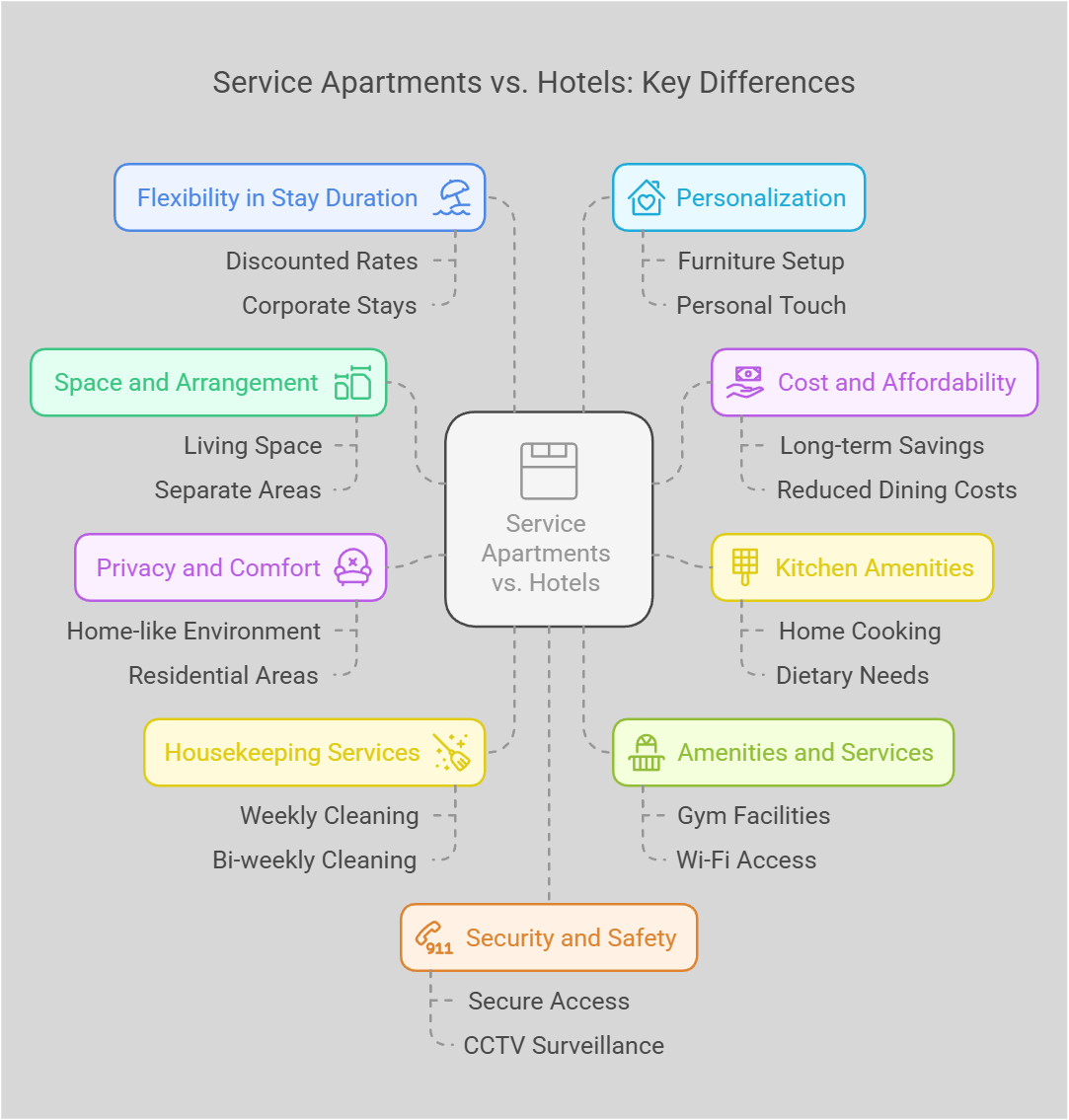
Which One to Pick?
The decision between a service apartment and a hotel is based on several factors such as the travel purpose, stay duration, budget, and individual preferences. Service Apartment VS. Hotel
Choose a hotel if:
You’re on a short trip (1-7 days).
You want daily housekeeping and 24/7 concierge services.
You like to eat out and avail hotel facilities.
You’re traveling for fun and desire a luxurious experience.
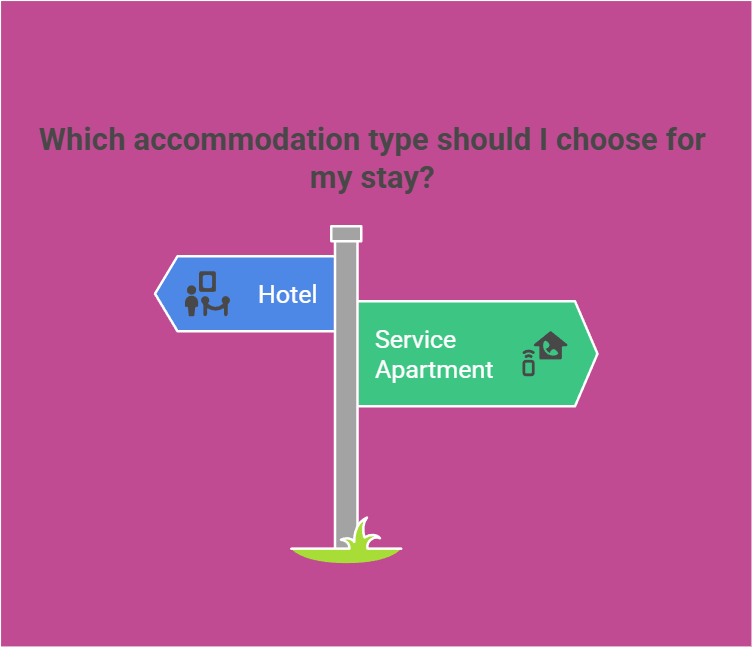
Choose a service apartment if:
You’re staying for an extended period (weeks or months).
You need a fully equipped kitchen for meal preparation.
You prefer a spacious living area with a homely feel.
You want a cost-effective alternative to hotels for long stays.
You value privacy and a quieter environment.
